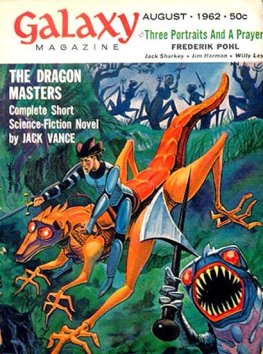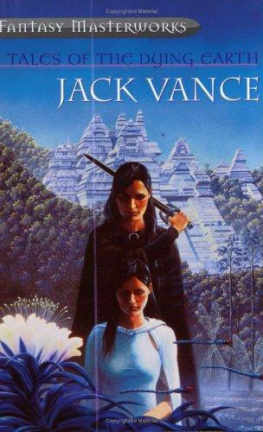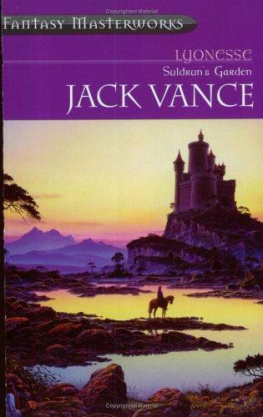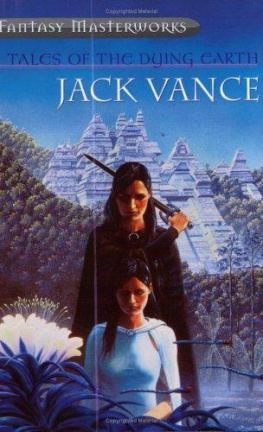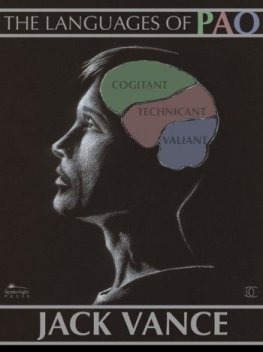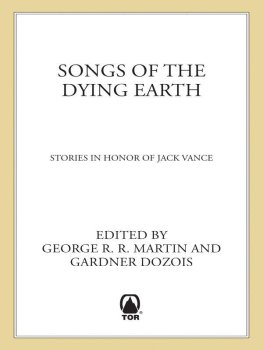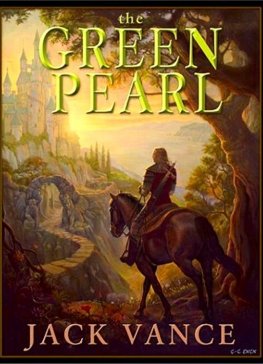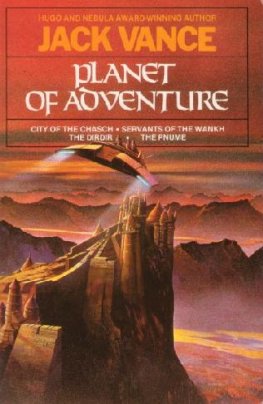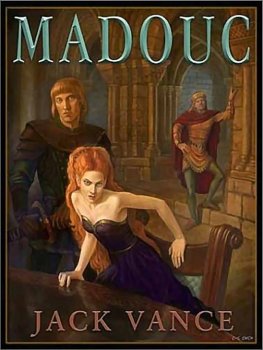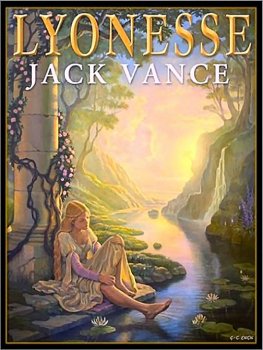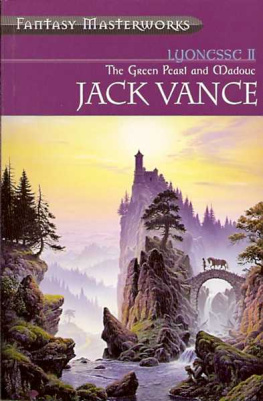Jack Vance - The Dragon Masters
Here you can read online Jack Vance - The Dragon Masters full text of the book (entire story) in english for free. Download pdf and epub, get meaning, cover and reviews about this ebook. year: 1962, publisher: Galaxy Publishing Corporation, genre: Science fiction. Description of the work, (preface) as well as reviews are available. Best literature library LitArk.com created for fans of good reading and offers a wide selection of genres:
Romance novel
Science fiction
Adventure
Detective
Science
History
Home and family
Prose
Art
Politics
Computer
Non-fiction
Religion
Business
Children
Humor
Choose a favorite category and find really read worthwhile books. Enjoy immersion in the world of imagination, feel the emotions of the characters or learn something new for yourself, make an fascinating discovery.
- Book:The Dragon Masters
- Author:
- Publisher:Galaxy Publishing Corporation
- Genre:
- Year:1962
- Rating:4 / 5
- Favourites:Add to favourites
- Your mark:
- 80
- 1
- 2
- 3
- 4
- 5
The Dragon Masters: summary, description and annotation
We offer to read an annotation, description, summary or preface (depends on what the author of the book "The Dragon Masters" wrote himself). If you haven't found the necessary information about the book — write in the comments, we will try to find it.
The Dragon Masters — read online for free the complete book (whole text) full work
Below is the text of the book, divided by pages. System saving the place of the last page read, allows you to conveniently read the book "The Dragon Masters" online for free, without having to search again every time where you left off. Put a bookmark, and you can go to the page where you finished reading at any time.
Font size:
Interval:
Bookmark:
The Dragon Masters
by Jack Vance

Introduction
How can one explain the relative obscurity of a writer whose work has twice won the Hugo Award for best science fiction of the year in its category? A man who has been writing and publishing science fiction for over a quarter of a century. A man whose prose style is so unique that a random paragraph taken out of almost any piece of science fiction or fantasy he has written is sufficient to identify itself as unmistakably the work of Jack Vance:
In the first place, the Rhune is exquisitely sensitive to his landscapes of mountain, meadow, forest and skyall changing with the changing modes of day. He reckons his land by its aesthetic appeal; he will connive a lifetime to gain a few choice acres. He enjoys pomp, protocol, heraldic minutiae; his niceties and graces are judged as carefully as the figures of a ballet. He prides himself on his collection of sherliken scales; or the emeralds which he has mined, cut, and polished with his own hands; or his Arah magic wheels, imported from halfway across the Gaean Reach. He will perfect himself in special mathematics, or an ancient language, or the lore of fanfares, or all three, or three other abstrusities. . . .
Marune: Alastor 933, p. 41.Yet Jack Vance seems to be an invisible man. Academics have written at great length and Byzantine complexity about science fiction writers with a far less substantial body of work and far less stylistic interest than Jack Vance. About Vance little has been written and even less is known. The science fiction readers, who twice have given Vance their award, seem to look right through him too. Not only will you seldom hear his name mentioned in a discussion of the major writers of the field, but there was a time in the 1950s when many fans were convinced that he did not exist.
In the late 1940s and early 1950s, Henry Kuttner and his wife Catherine Moore wrote under a bewildering number of pseudonyms, singly and together. Henry Kuttner, C. L. Moore, Lewis Padgett, Laurence ODonnell, and any number of other regular contributors to the science fiction magazines were really Kuttner and/or Moore in one or another of their permutations. And it was thought for a time that Jack Vance was but another pseudonym of the Kuttners. This rumor was not scotched until Henry Kuttner died and his wife went into retirement and Jack Vance continued to produce works. Even today, some libraries still erroneously catalogue the books of Jack Vance as pseudonymously written by Kuttner, and there they sit on the shelves with the Ks. Hows that for the invisible man?
And far from chafing under this anonymity, Vance seems to cultivate it. He does not contribute to fanzines; he does not go to science fiction conventions; he does not lecture at colleges; he does not give interviews; and even his agent has not been provided with an official biography.
In one of Vances stories of the magical twilight of man, collected in The Dying Earth, Liane the Wayfarer finds a magic ring through which he can step into a private universe and thus render himself invisible to passing eyes: Once more Liane tried his bronze ring, and this time brought it entirely past his feet, stepped out of it, and brought the ring up into the darkness beside him. What a sanctuary! A hole whose opening could be hidden inside the hole itself! (The Dying Earth, p. 70). It would appear that Vance himself has deliberately done the same thing. A thirty year stream of work has steadily appeared in our own continuum, but the intelligence behind it remains inside its invisible hidey-hole.
Rest assured, however, that Jack Vance does indeed exist, no matter how hard he may try to obscure the fact. Officially, he was born in San Francisco on August 28, 1916, grew up in the San Joachim Valley, and his full moniker is John Holbrook Vance, which form of his name he uses on his mystery fiction (Bad Ronald, The Fox Valley Murders, The Pleasant Grove Murders), which has won him an Edgar Award. Unofficially, I was his anonymous agent for a time when I worked at the Scott Meredith Literary Agency for a time in 1965, and once I met him at Poul Andersons house in Orinda, California. Jack Vance is really Jack Vance.
Turning from the man to his work, the invisibility act looks even more the amazing feat of prestidigitation, Phandaals Mantle of Stealth. As near as can be accurately counted, Jack Vance has published 26 novels and 7 collections of short stories, not counting the mysteries published under John Holbrook Vance. Many of these 33 books have gone into multiple printings. One of them, his first, The Dying Earth, has been considered a classic for twenty years. Its sequel, the stories of Cugel the Clever, published as The Eyes of the Overworld a decade later, eclipses it thoroughly as a work of literature. Both The Last Castle and the book before us, The Dragon Masters, won Hugos in their magazine novella versions. We have here one of the longest-working and prolific authors in the science-fiction genre, a multiple award winner, and, moreover, a writer whose production has been more or less consistent for over a quarter of a century, and who has maintained a similarly consistent style, elegance, and craftsmanship. The Dying Earth, The Eyes of the Overworld, The Blue World, and Emphyrio, for example, which did not win awards, are by no means inferior to the works that did. Vances fiction is of a piece, a high plain of craftsmanship with few peaks or valleys.
The science fiction genre has produced but a handful of true styliststhat is, writers whose sentence-by-sentence prose is fine enough, idiosyncratic enough, subtle enough, and consistent enough from page to page and book to book to become the major interest in reading their work. Ray Bradbury. R. A. Lafferty. Alfred Bester. Perhaps Harlan Ellison and Cordwainer Smith.
But the list is tiny. It does not include Theodore Sturgeon, Brian W. Aldiss, or Philip Jose Farmer, for instance, who are masters of several styles, who match their prose to their content, work by work. Nor does it include writers like Roger Zelazny or J. R. R. Tolkien or Samuel R. Delany, whose prose styles derive from the consistent iconography of their content. Few science fiction writers indeed have chosen to develop style-as-content, to concentrate on how more than what, to write, in this sense, in a baroque mode.
And no science fiction writer does it with the Roman luxuriousness and razor-edge control of Jack Vance. Vance cavorts in his own words like Scrooge McDuck in his money bin swimming pool. Like a painter, he endlessly describes clothing, architecture, landscape, and qualities of light for the purely aesthetic joy of it:
Deep in thought, Mazirian the Magician walked his garden. Trees fruited with many intoxications overhung his path, and flowers bowed obsequiously as he passed. An inch above the ground, dull as agates, the eyes of mandrakes followed the tread of his black-slippered feet. Such was Mazirians gardenthree terraces growing with strange and wonderful vegetations. Certain plants swam with changing iridescences; others held up blooms pulsing like sea anemones, purple, green, lilac, pink, yellow. Here grew trees like feather parasols, trees with transparent trunks threaded with red and yellow veins, trees with foliage like metal foil, each leaf a different metalcopper, silver, blue tantalum, bronze, green iridium. Here blooms like bubbles tugged gently upward from glazed green leaves, there a shrub bore a thousand pipe-shaped blossums, each whistling softly to make music of the ancient Earth, of the ruby-red sunlight, water seeping through black soil, the languid winds. And beyond the roqual hedge the trees of the forest made a tall wall of mystery.
Font size:
Interval:
Bookmark:
Similar books «The Dragon Masters»
Look at similar books to The Dragon Masters. We have selected literature similar in name and meaning in the hope of providing readers with more options to find new, interesting, not yet read works.
Discussion, reviews of the book The Dragon Masters and just readers' own opinions. Leave your comments, write what you think about the work, its meaning or the main characters. Specify what exactly you liked and what you didn't like, and why you think so.

